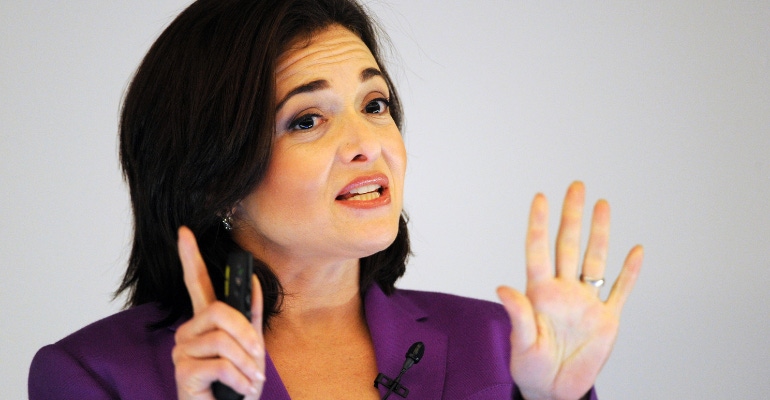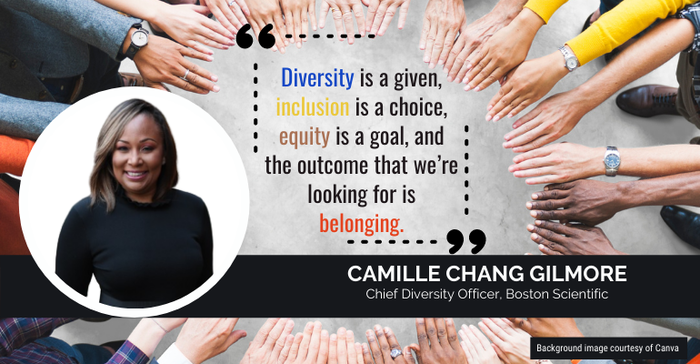Why women like Elizabeth Holmes and Sheryl Sandberg may be part of a bigger problem in the corporate world.
June 21, 2022

Here we go again — another Silicon Valley female executive mucks it up. That was my first thought after reading the Wall Street Journal's report that Meta Platforms (Facebook) is allegedly investigating Sheryl Sandberg's use of corporate resources.
After 14 years as Facebook's chief operating officer, Sandberg recently announced she will be resigning from the position this year. Now, WSJ's report has sparked an even greater amount of media interest in the billionaire tech executive. The investigation reportedly focuses on the extent to which her staff worked on her personal projects, as well as some accusations that she used some of the company's funds to pay for her wedding. Citing people familiar with the matter, WSJ reported that the investigation examines behavior "going back several years."
When the dust settles, will Sandberg have done more harm than good to the progress of women in corporate leadership roles across all industries? Because I couldn't help but think of Elizabeth Holmes and the damage her actions at Theranos caused for women entrepreneurs, especially in the medical device and diagnostics industry. There is a line in the seventh episode of Hulu's dramatized version of the Theranos story, "The Dropout," that says it best. And yes, it is the drama series, not the HBO documentary on Theranos, but it's still a great line about the responsibility that powerful women have to every woman who tries to follow in their footsteps.
It's the scene where Phyillis Gardner (played by Laurie Metcalf) finds Holmes (played by Amanda Seyfried), slides onto a bar stool beside her and serves her a shot of its-not-just-about-you wisdom.
"And when this becomes a scandal – because it will become a scandal – what do you think happens to all the other women who want to start companies? Who do they go to? Who's going to trust them? 'Cause it's not just you," she says. "It's never just you."
I kept hearing this line in my head over on Sunday as I read Caitlin Flanagan's brilliantly scathing take on the issue in The Atlantic, "Sheryl Sandberg and the Crackling Hellfire of Corporate America." I kept thinking about how the Theranos scandal was such a slap in the face to all of the hard-won progress the medtech industry has made (granted there is still a long way to go) toward leveling the playing field for women.
But I also thought about the industry's more positive female role models. People like Marissa Fayer, Camille Chang Gilmore, Maria Shepherd, Shacey Petrovic, and many others. Because even though the number of honest women in the industry far outnumber the women like Holmes, the media is always hungrier for the fraudulent tales.
Fayer, for example, is a veteran in the medtech industry who has previously served as an executive at Hologic, Olympus, Maquet-Getting (formerly Atrium Medical), Providien Medical, and Accumed Innovative Technologies. These days Fayer wears many hats, including CEO/founder of HerHealthEQ, a nonprofit dedicated to enriching women’s health across the globe, and president of Fayer Consulting.
"At this point, investors need no extra reason not to invest in women," Fayer said during a Let’s Talk Medtech podcast episode discussing the Holmes verdict.
Curious to find out what Fayer thought of the accusations against Sheryl Sandberg, I reached out to her on Monday.
"I've been thinking all weekend that again, if she wasn't a woman, would this be such a large news story? How many men have been investigated for this and it's been a one-cycle news story and then forgotten about? And we're talking about some [money] that went to pay for her wedding (from what I hear), not corporate embezzlement or the entire financial market collapse. So, while it's illegal, the scale of the news and media coverage about [Sheryl Sandberg] is not in proportion to what actually happened," Fayer said. "And why didn't this come out years ago, why now as part of her leaving? Or am I being naive?"
I found myself nodding emphatically as I read Fayer's emailed response to my inquiry. The media is often guilty of latching onto stories about corrupt women more so than corrupt men. After all, if a dog bites a man, it isn't news. If a man bites a dog, it's definitely news.
As for the timing, I can't help but wonder if the company, which has been under a ton of scrutiny in recent months, isn't using its so-called Sheryl Sandberg problem to distract us from all of its other problems. It's my understanding that she has owend up to her part in those problems, but there's most likely a lot of blame to go around.
I also reached out to Shepherd, president and CEO of Medi-Vantage, a marketing and product development strategy consulting firm for the medical technology industry. She is also a MedExecWomen co-founder. Shepherd has also authored several exclusive articles for MD+DI over the years.
"I have always been a big fan of Sheryl Sandberg and for a while there, her book; "Lean In: Women, Work, and the Will to Lead," was required reading for all women in the medtech industry who wanted to reach leadership levels. I am sad to hear about these accusations (which are not the same as proof of misconduct). I hope that her legacy will continue to be one where she is recognized for the great contributions that she's made to society in general and women in particular. We know her name because she has made a difference in how female executives are empowered to reach leadership positions."
I too will be disappointed if these accusations turn out to be true (not surprised, I'm afraid, but disappointed). Because when powerful women mess up it impacts every woman who dares to hold (or dream of holding) a leadership position in any industry.

While I wasn't able to reach out to all of the amazing women leaders in medtech, I do believe now is a good time to recognize a few of them, because I too have been guilty of focusing too much on women like Holmes and Sandberg (if she turns out to be guilty of the accusations against her). In addition to Fayer and Shepherd, these are just a few of the women helping to pave the way for future leaders in the industry.
A few good women in medtech

As the chief diversity officer at Boston Scientific, Camille Chang Gilmore is a champion for diversity, inclusion, and belonging. I have had the pleasure of speaking with her a few times and I always walk away with a gem of wisdom that sticks with me long after the interview is over. When Gilmore speaks about diversity in the corporate world, I know she is speaking from the heart. She's not taking part in any type of box-checking exercise, she's truly making a difference at Boston Scientific and beyond.
Shacey Petrovic was, until earlier this month, the CEO at Insulet. Petrovic stepped down for medical and family reasons. I never had an opportunity to speak with her, but by all accounts, she was a well-respected leader in the industry who led the diabetes tech company through a period of strong growth and business transformation.
Another well-respected medtech leader is Saundra Pelletier who "worked to grow EvoFem while battling breast cancer and never took a day off," Fayer told me. I don't even know what to say to that because it's just such a remarkable example of dedication and perseverance.
The industry truly is full of examples of accomplished women who are living proof of why diversity and equality in leadership matters. Because at the end of the day, these women know that it's not just about them. It's about all the women who will come after them.
About the Author(s)
You May Also Like




